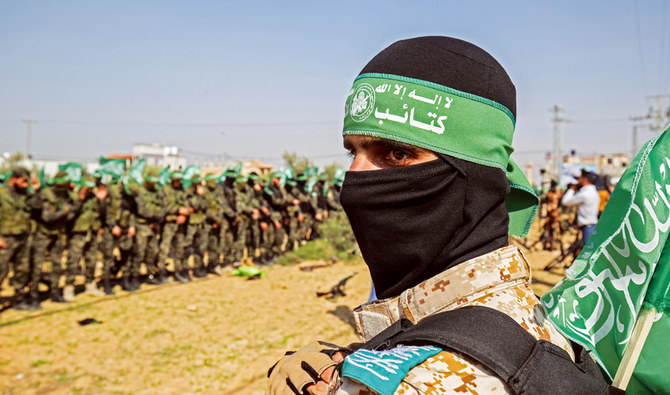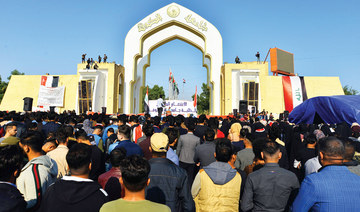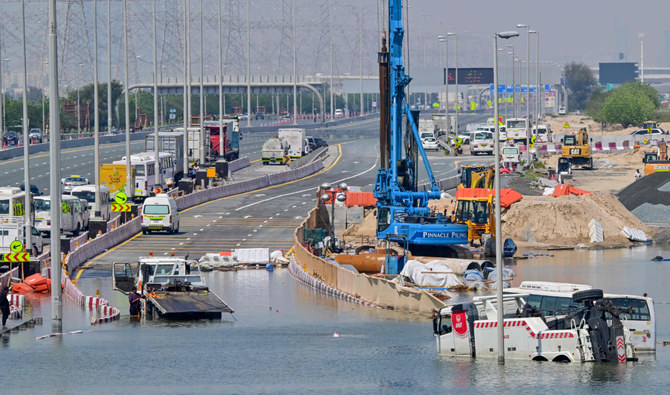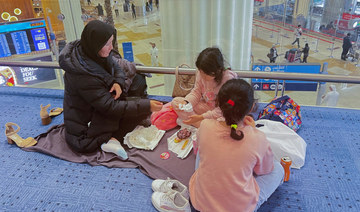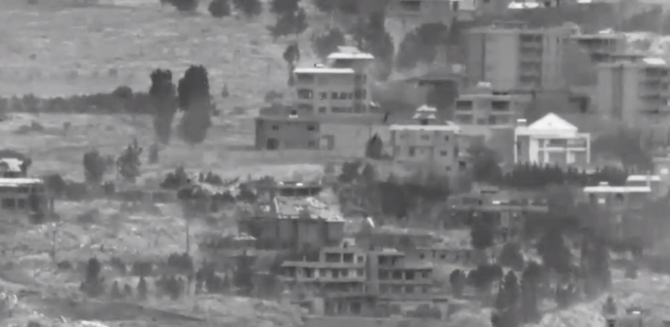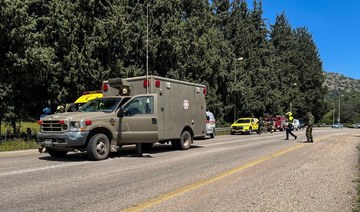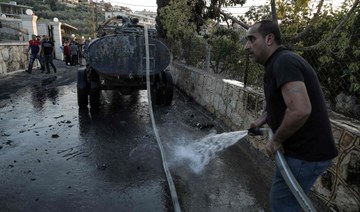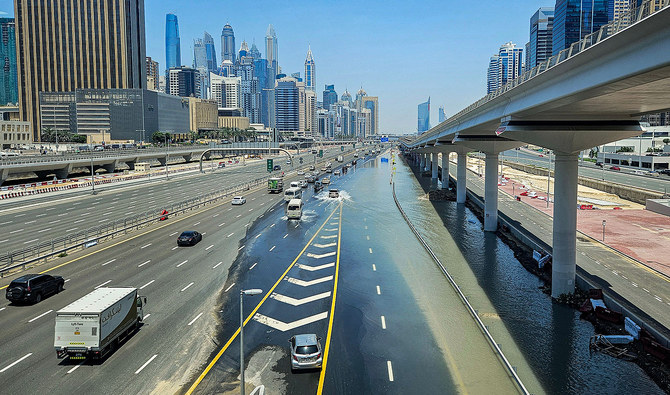DUBAI: The popularity of extremist groups such as Daesh, Al-Qaeda and the Taliban, as well as religious political parties and groups, like Hamas, the Muslim Brotherhood and Hezbollah, will decline over the next 10 years.
That is what a substantial number of respondents predict for their home country in a YouGov poll on “Mosque and state: How Arabs see the future,” conducted across 18 countries of the Middle East and North Africa (MENA) region.
As part of its partnership with the Arab Strategy Forum, Arab News commissioned the survey of the views and concerns of Arabs today, and their projections for the future of the region. A total of 3,079 Arabic speakers aged 18 or above were interviewed.
One of the strongest messages conveyed by the study was that the Arab world has had enough of extremist groups and political organizations based on religion, with substantial combined averages believing their home country would see less of the Muslim Brotherhood (59 percent), Hezbollah (63 percent), Al-Qaeda (75 percent) and Hamas (57 percent) over the next 10 years.
#ArabStrategyForum: A majority of Iraqis and Lebanese believe religion is affecting their government's political decisions, and that separation of religion and politics would lead to less wars, suggests a YouGov pan-Arab poll. Watch the video for more of the survey results. pic.twitter.com/pPkHwcpB60
— Arab News (@arabnews) December 9, 2019
Evidently, neither the killing of Al-Qaeda founder Osama bin Laden in 2011, nor the deaths of his son Hamza bin Laden and Daesh chief Abu Bakr Al-Baghdadi this year generated measurable sympathy for extremist organizations in the Arab world.
“Without a doubt, the region is falling behind because of persistent violence and conflict,” said Dr. Albadr Al-Shateri, politics professor at the National Defense College in Abu Dhabi.
“That the people are sick and tired of extremism is obvious enough. The region is facing a real crisis in terms of development and governance. Revisiting old issues repeatedly will not solve the problems.”
His sentiments were echoed by Dr. Abdulkhaleq Abdulla, former chairman of the Arab Council for Social Sciences, who says the Middle East has had enough of extremism, with Arabs having realized that political parties, groups and organizations based on religion were “taking them nowhere.”
“Indeed, we have seen the ugly face of it during the four to five years of Daesh’s control of large areas, both in Syria and Iraq,” he said. “So it is very natural to see there is a decline in the popularity of these parties. But much more important are the predictions that support for religious parties, whether moderate or extremist, is in sharp decline.”
Abdulla described the shift as “good news” for the region, where religion has been widely used for political purposes. “People are becoming aware that there has been some kind of abuse and overuse of people’s emotions for political gains by these religious movements,” he said.
“The foremost is the Muslim Brotherhood, which is going through its worst moment.”
After the failure of extremist governments or parties across the region — including, most recently, the regime in Iranian — Michael Singh, managing director at the Washington Institute, says it is little surprise that public opinion has soured.
“Nevertheless, violent extremist groups continue to grow across the region, as do incidents of terrorism,” he told Arab News. “These survey results suggest that governments will have the public on their side if they wish to defeat extremism, but doing so will require addressing some of its underlying causes, such as the lack of political space for dissent, abuse by security forces, or a sense of economic unfairness and corruption.
“Too often, governments in the region have cynically brandished extremist groups to discredit all political opposition, a practice which only contributed to radicalization.”
Al-Shateri added the region needed openness and more integration with the world, and global engagement in the form of trade, investment and cultural exchange.
“These needs will not be met by extremism and dogmatism,” he said. “On the contrary, it will set back the cause of modernity and development.”
The issues of extremism and violence are intertwined, according to Al-Shateri, given the plethora of problems that beset the Middle East. Describing the combination of external and internal factors as lethal, he says occupation and foreign meddling amount to a lethal combination, over and above the region’s economic problems, political repression and social dislocation.
Nadim Shehadi, an associate fellow at the UK foreign policy institute Chatham House, views the anti-government protests taking place in Lebanon and Iraq as very different from the ones in the past, revealing a generational shift.
“People are fed up with 70 years of war, sectarianism and nationalism,” he told Arab News. “What is happening now is a revolt against extremism but by Shiites, against the institutions of Iran’s Islamic Revolutionary Guard Corps — in Iran itself, in Lebanon and in Iraq.”
He attributes the apparent shift to the predicted decline of extremist groups. “There is a new dynamic in the region, so the rhetoric of mainstream politicians who use extremism to gain power is no longer credible because of the economic situation,” Shehadi said, adding: “It’s going in a new direction because these populist revolts are not particular to the Middle East. They are everywhere.”




